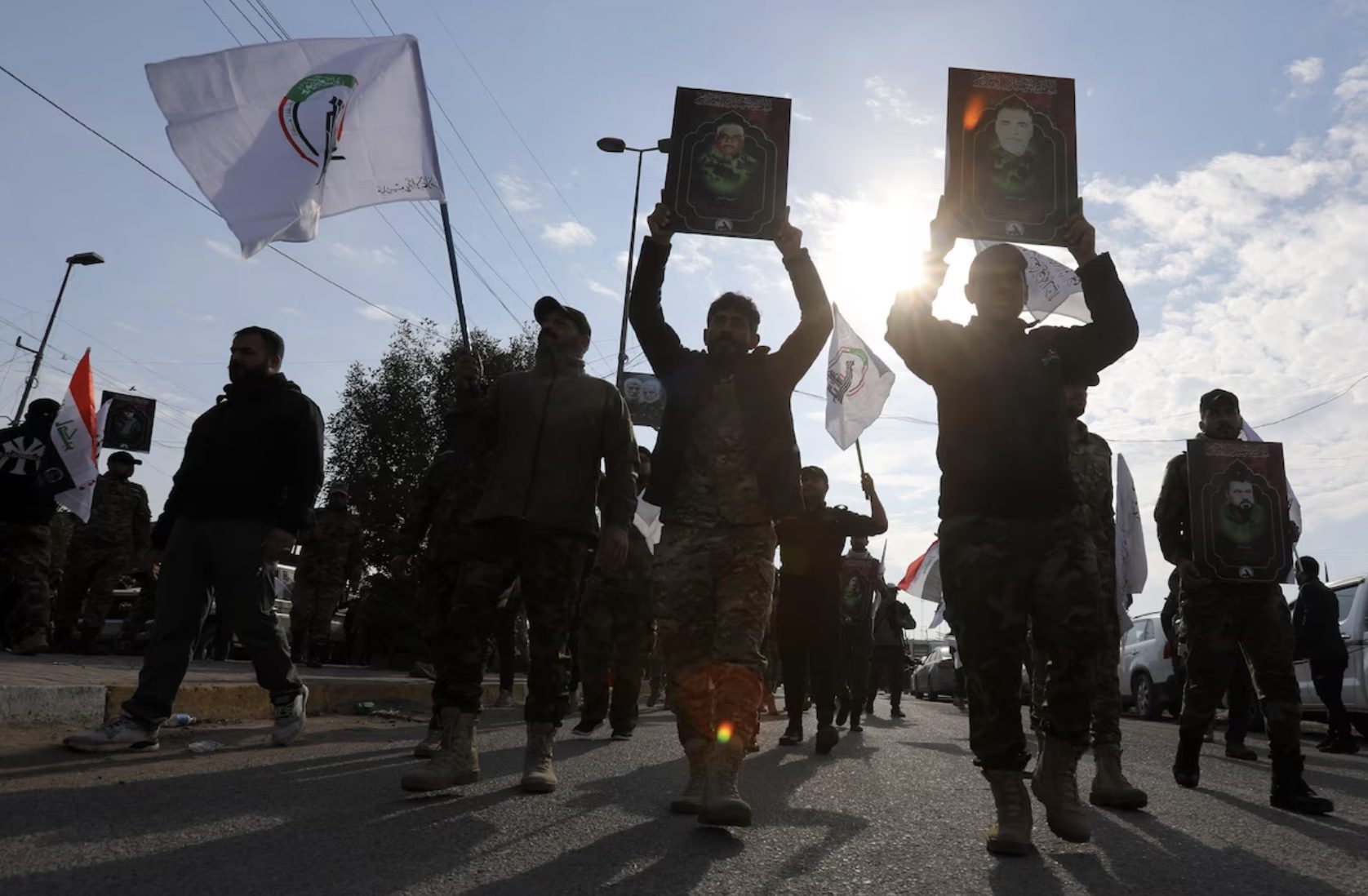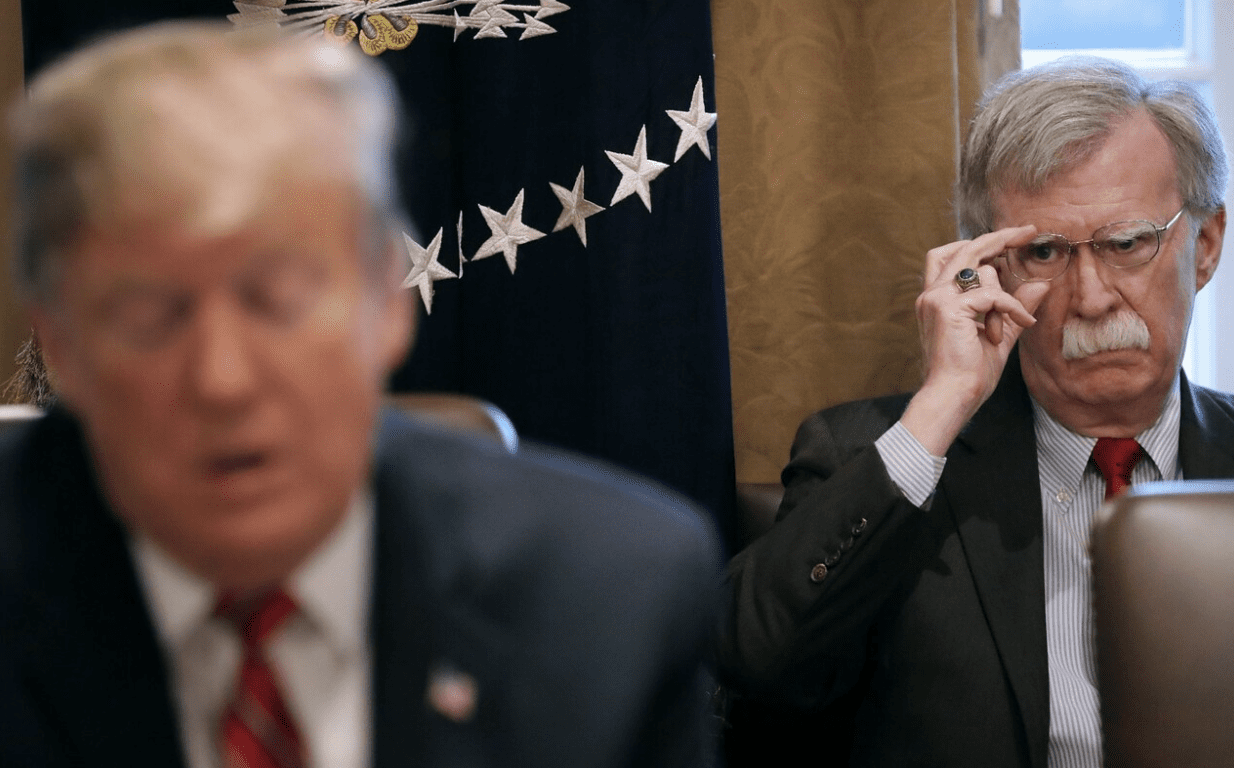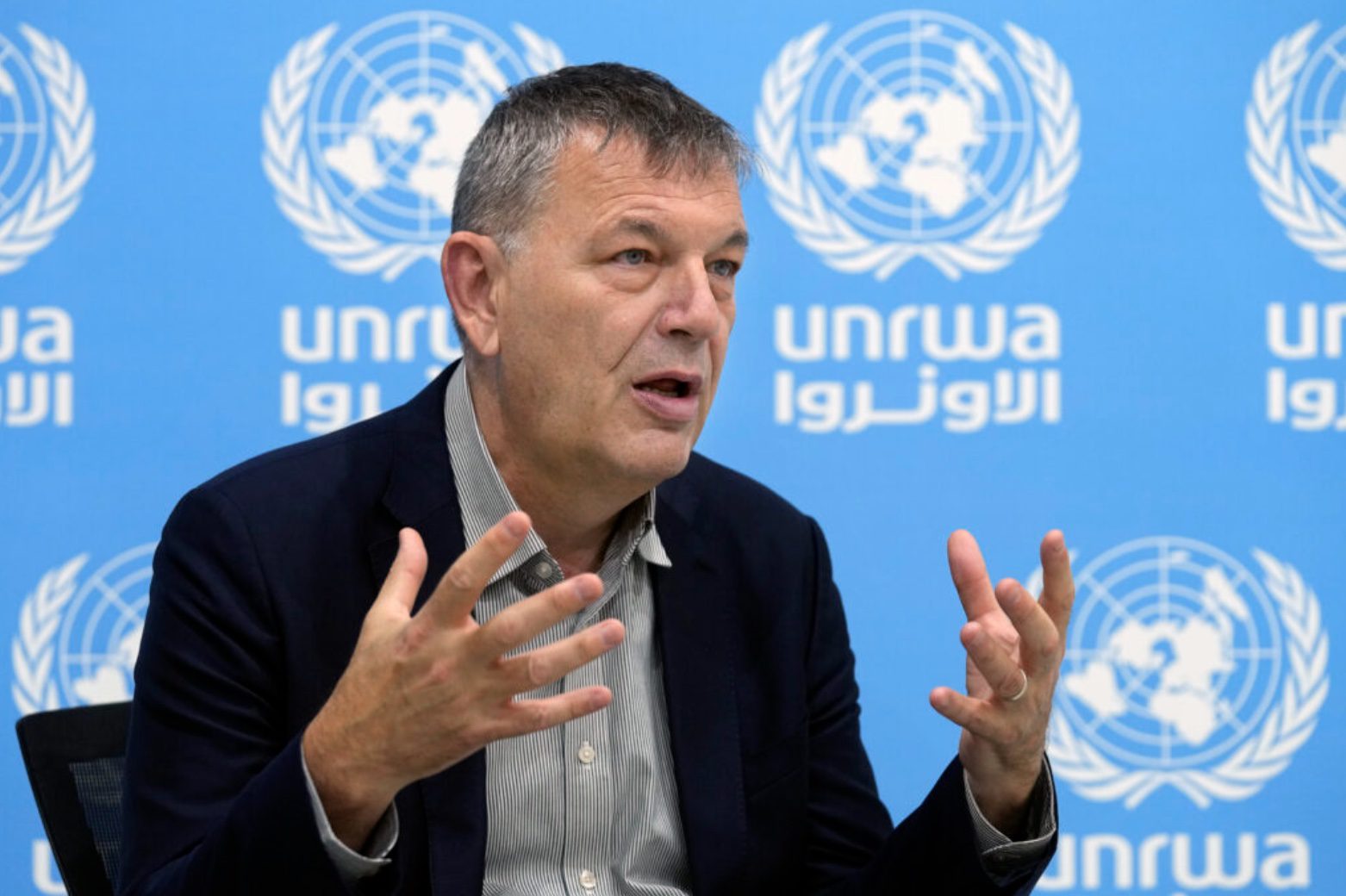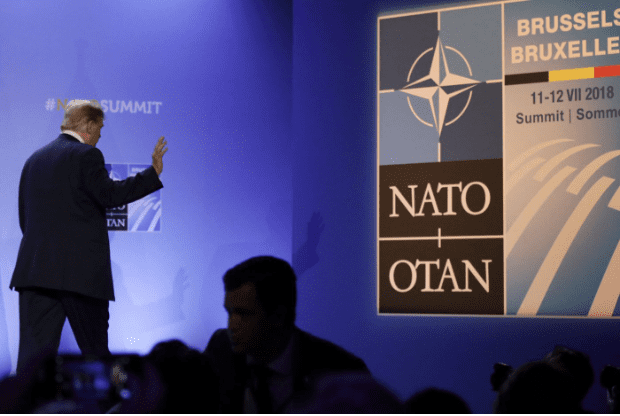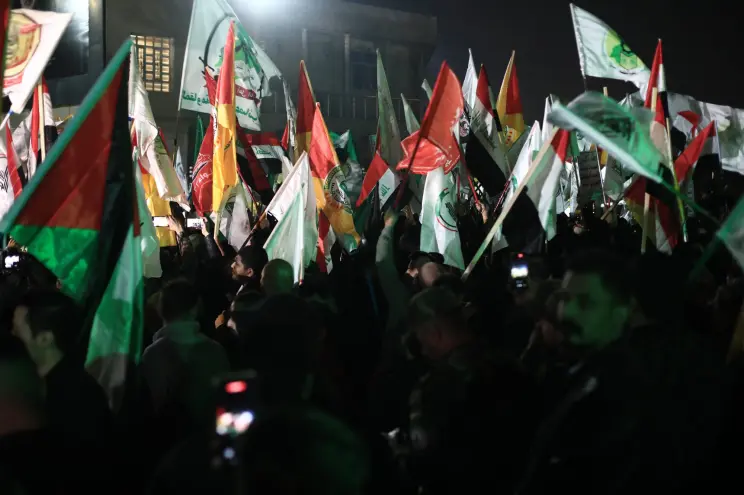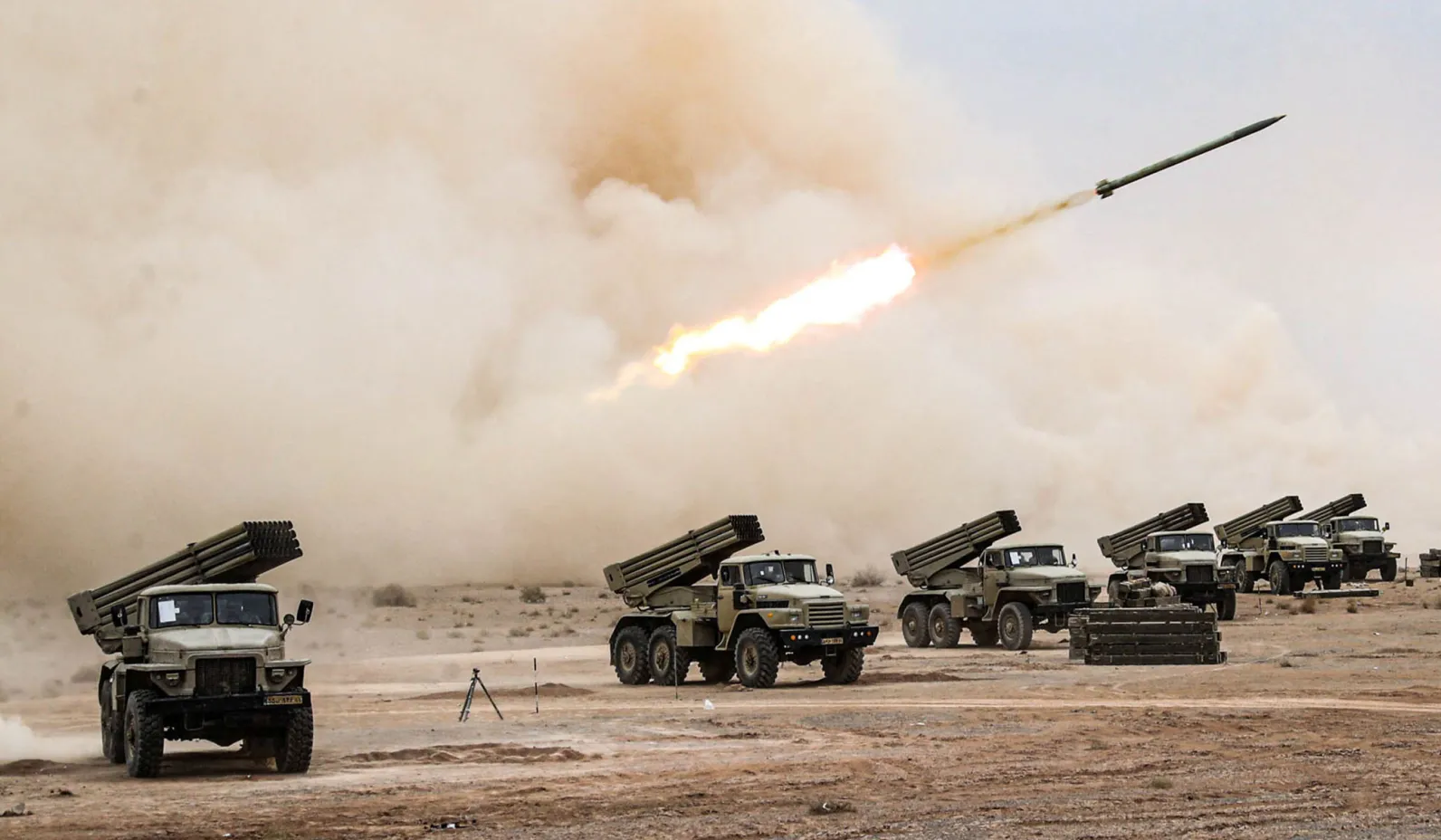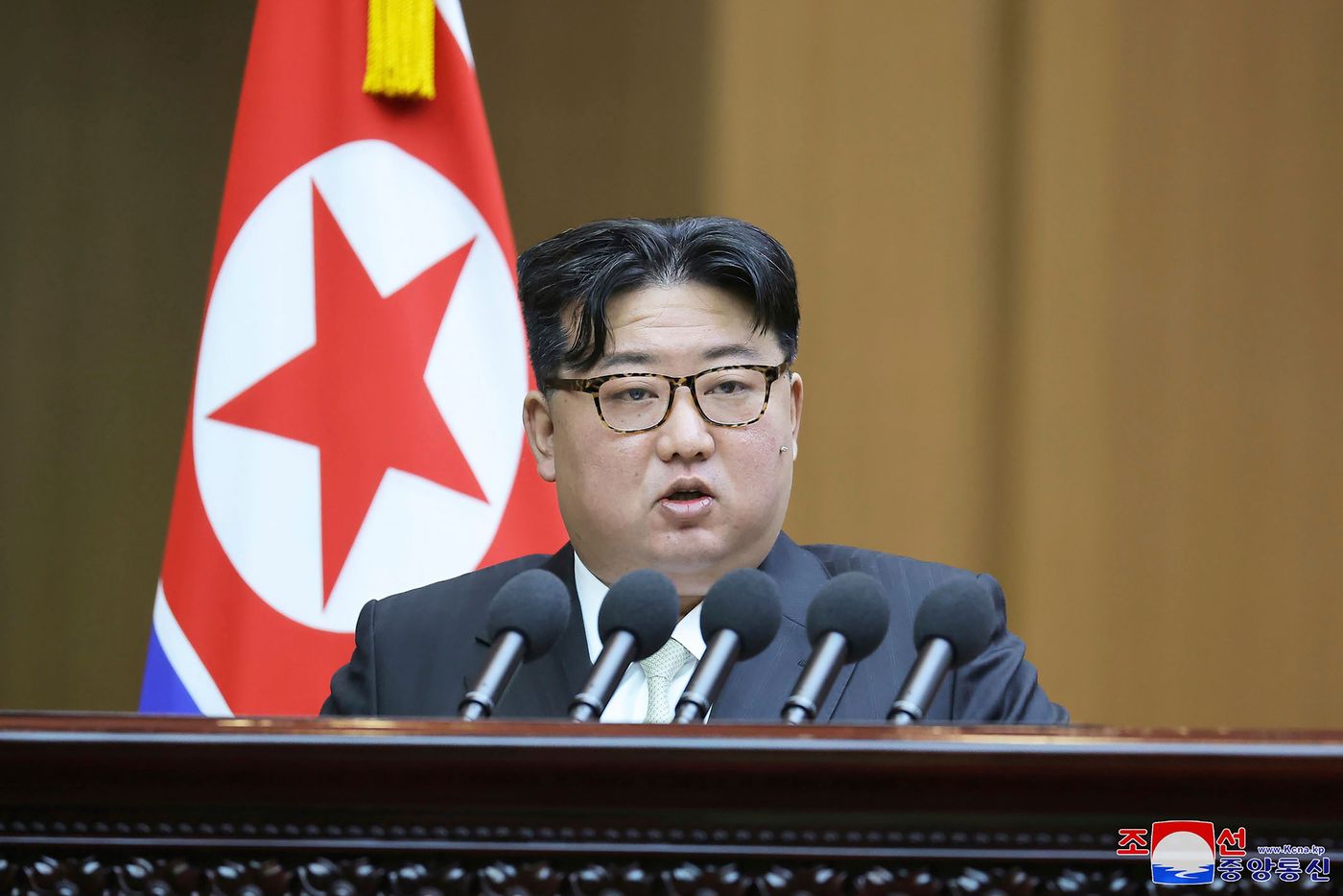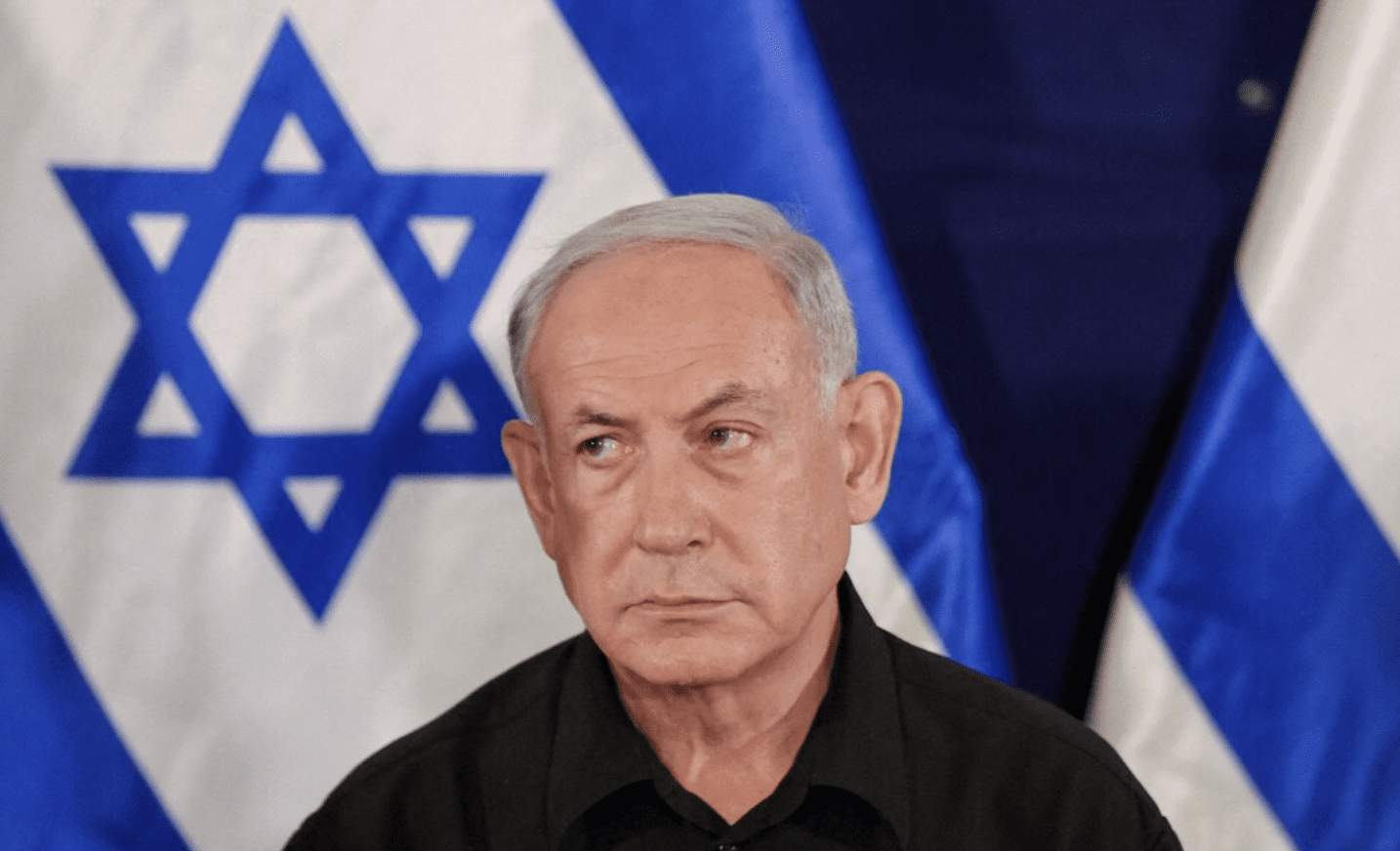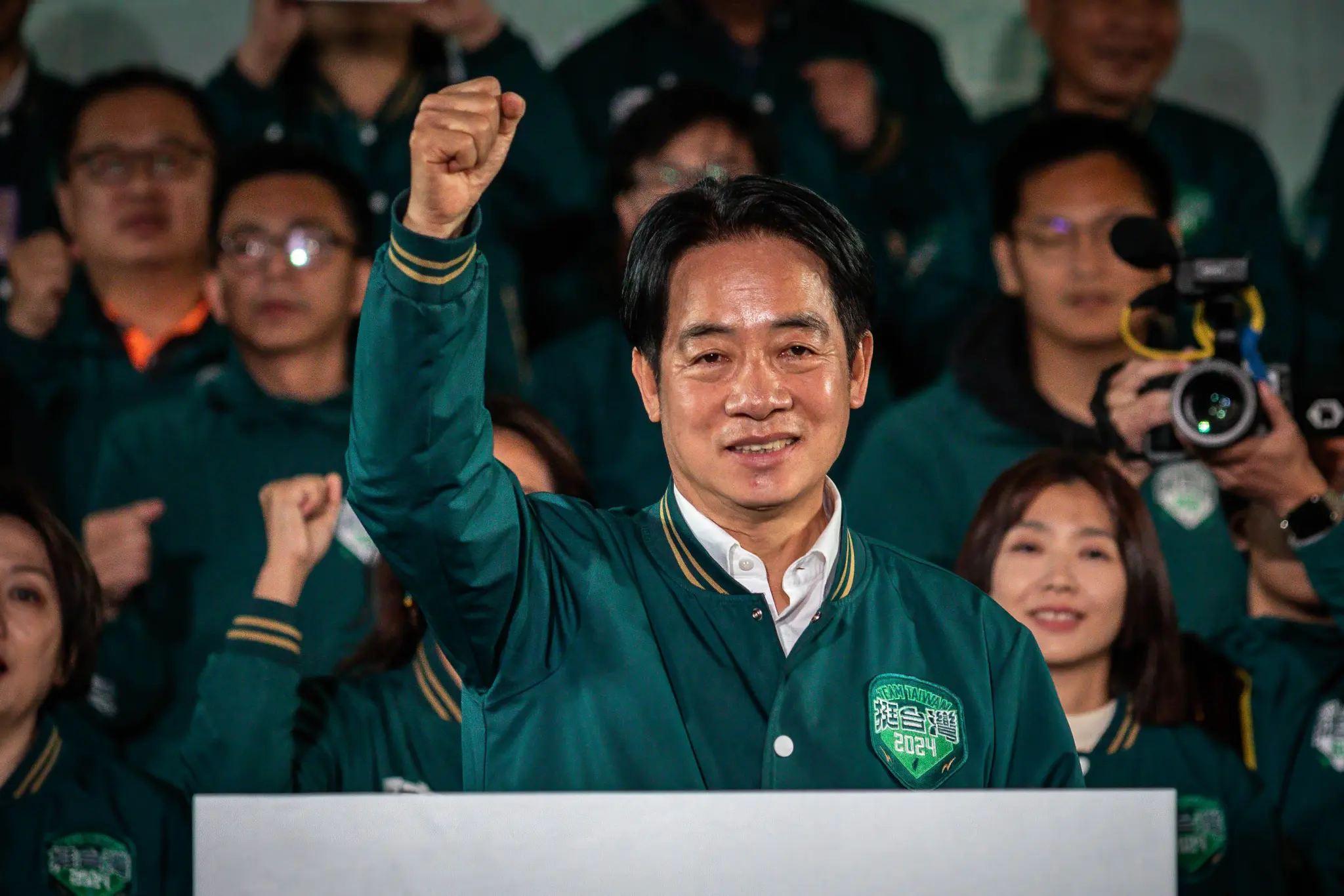By John Bolton
Donald Trump’s assault on the North Atlantic Treaty Organization began in his first term and has continued as he campaigns for a second. NATO certainly has its problems, as Henry Kissinger argued in “The Troubled Partnership: A Re-Appraisal of the Atlantic Alliance” (1965). But it serves U.S. national-security interests. Undermining U.S. strength by eroding alliances hardly amounts to an America-first agenda. Further, Mr. Trump’s focus on NATO shields from scrutiny the United Nations and other international institutions that are much more inimical to America.
Mr. Trump’s acolytes recognize that his NATO withdrawal threats have kicked up problems. Tellingly, however, their efforts to clean up after him are themselves unwise and unworkable. They unintentionally reflect the irrationality of Mr. Trump’s longstanding effort to debilitate NATO and his blunderbuss approach to world affairs generally.
One MAGA-world alternative to complete withdrawal is creating a “two-tier NATO,” in which any member not meeting the 2014 Cardiff summit commitment to spend 2% of gross domestic product on defense wouldn’t receive alliance protection. This notion is toxic to alliance solidarity and impractical. Iceland, a NATO member, has no military and therefore spends nothing on defense. I never discussed Iceland with Mr. Trump, but I expect he’d question why it was even allowed in NATO. The simple answer: Look at a map. Shall we concede Iceland to Russia or China so it can “persuade” Reykjavik to allow naval and air bases there?
Consider the vulnerability of Poland, the Baltics and others on Russia’s periphery. Because of geography, they are at risk no matter how high their defense spending—and all now exceed the Cardiff target. NATO deterrence provides their only real protection. If that deterrence recedes or fails, the Moscow-Beijing axis will seize these low-hanging fruit, notwithstanding that they satisfy Trump accounting rules.
Finally, a two-tiered NATO would be untenable in combat, logistics and communications. Imagine that Russia invades Poland. The U.S. springs to its aid, but Russia advances close to the German border. The U.S. field commander calls his Russian counterpart to say: “You can do whatever the hell you want in Germany. Please excuse us while we retreat to the next NATO country that spends 2% of its GDP on defense. We’ll see you there if you attack them after you finish Germany.” The Russians are already enjoying vodka toasts over a two-tiered NATO.
Another Trump World proposal is to impose tariffs on NATO member countries that don’t reach the 2% spending level. Presumably, this logic also applies to non-NATO allies like Japan, South Korea and Australia if Mr. Trump believes they aren’t carrying their fair share of the defense burden. This gambit is a non sequitur to everyone but Mr. Trump, for whom international problems are nails crying out for his tariff hammer. Penalizing the economies of U.S. allies to encourage them to increase defense spending sounds like “the beatings will continue until morale improves.”
More practically, on what authority could Mr. Trump draw to impose such tariffs? Even a Republican-controlled Congress, which is far from certain, is highly unlikely to give him new tariff authority. Section 301 of the 1974 Trade Act, often cited in Mr. Trump’s first term, applies when foreign actions are “unreasonable or discriminatory, and burden or restrict U.S. commerce.” That hardly covers sovereign defense-spending decisions we happen not to like.
Section 232 of the 1962 Trade Act, authorizing tariffs to protect American national security, is closer to the mark. Mr. Trump used Section 232 to impose tariffs on Canadian and European steel and aluminum imports, thereby proving, unsurprisingly to everyone but Mr. Trump, that penalizing your allies doesn’t weaken your adversaries. Obviously, the opposite is true: we should be unifying allies against China economically as well as politically, not splitting the camp of those harmed by Chinese intellectual-property piracy and harmful trade policies.
Even if all NATO members reached the Cardiff targets, the spending issue wouldn’t disappear. Facing mounting global threats, Washington’s defense budgets need to increase to Reagan-era levels, perhaps 5% to 6% of GDP from the current 3.5%. Inevitably, therefore, NATO members (and other allies globally) will have to increase to perhaps a 4% minimum. Getting to 2% is the easy part. The Trump-mitigating proposals are untenable, evanescent, and inadequate to keep NATO strong.
Besides, there are better targets for MAGA ire. Mr. Trump could usefully wreak havoc on the U.N. As I said 30 years ago, you could lose the top 10 floors of the U.N. Secretariat building and it wouldn’t make a bit of difference. Things have only gotten worse.
In 2022, Washington spent about $18.1 billion across the U.N. system, far more than any other contributor. Contributions are made via several methods in a complex, nearly incomprehensible system, most commonly through “assessed” contributions, with the U.S. generally paying 22% of agency budgets so funded. Washington has had limited success in constraining U.N. budgets, and has often itself prompted significant increases.
Assessed contributions are functionally taxes. Contrary to what some Trump supporters have said, defense expenditures aren’t. We need to spend on our defense whether we have allies or not. Allies help reduce that burden. The U.N. only makes it heavier.
One powerful reform would be shifting from assessed contributions to wholly voluntary ones. America and other members would pay only for what they want and insist they get value for money. Even if only the U.S. switched unilaterally to voluntary contributions, it would create a tsunami that could fundamentally change the entire U.N. Or not, in which case at least we wouldn’t be paying for it.
There is no chance any U.N. component will ever voluntarily adopt such a system, because the U.S. has been the U.N.’s cash cow since 1945. Instead, a President Trump could simply say we are moving to voluntary contributions whether anyone else does or not. Under Article 19 of the U.N. Charter, failure to pay assessments for two years running could cost a country its vote in the General Assembly, but that loss is insignificant. General Assembly votes are nonbinding, and the U.S. carries no more weight than Vanuatu or Eritrea.
America’s Security Council vote, and therefore its veto power, is totally secure, guaranteed by the charter’s Article 27, and the charter itself can’t be amended without consent from all permanent members, including the U.S., per Article 108.
For those U.N. specialized agencies and programs already funded voluntarily, Inauguration Day would present immediate opportunities to defund some entirely and reduce funding for others. In his first term, Mr. Trump defunded the U.N. Relief and Works Agency, a decision Joe Biden reversed. Given that some Unrwa employees joined Hamas’s Oct. 7 attacks, defunding it should be a top priority.
As Washington implemented a switch to voluntary contributions, it would face important decisions on continuing membership in several U.N. entities, decisions which would involve not merely defunding, but withdrawing from them completely. The U.S. has been in and out of the U.N. Educational, Scientific and Cultural Organization for decades, withdrawing first under Ronald Reagan, inexplicably rejoining under George W. Bush. Mr. Trump took us out again, and Mr. Biden again returned. A Trump win should guarantee a third withdrawal, hopefully for good. Mr. Trump also served notice of withdrawing from the Universal Postal Union but later backed down. UPU warrants another look.
Beyond massive changes in U.N. funding and membership, Mr. Trump should insist that an American become U.N. secretary-general when António Guterres’s term expires in December 2026. Although I have no prospect of and no desire for a position in Mr. Trump’s second-term administration, I would be available as our candidate for secretary-general.
The ultimate question is whether America should withdraw from the U.N. altogether. Ambassador Jeane Kirkpatrick was once asked that question. She paused, then answered: “No, it’s not worth the trouble.”
Although technically part of the U.N., international financial institutions such as the International Monetary Fund, the World Bank and the Inter-American Development Bank should also be carefully re-examined. On the IMF, Mr. Trump should read the seminal 1998 op-ed in these pages by George Shultz, William Simon and Walter Wriston, “Who Needs the IMF?” No one has answered the question adequately.
Not since the Reagan administration has there been a comprehensive review of multilateral foreign assistance. Proponents long argued that multilateral development banks help Washington mobilize development resources, but private capital is now far more widely available than when they were founded. Multilateral foreign aid only marginally advances U.S. national-security interests, but these banks have powerful Washington lobbies. Mr. Trump should mark them down for defunding or withdrawal. That would free up greater resources for bilateral foreign assistance, which, if implemented effectively, can advance core American interests.
Finally, a wall of pretend international courts—including the International Court of Justice, the International Criminal Court, the Law of the Sea Treaty’s tribunal and the World Trade Organization’s dispute-resolution process—are already on history’s ash heap, or on their way there. Clearing away what remains is still important work. In his first term, Mr. Trump stymied the WTO judicial mechanism, and even the Biden administration has kept it stymied so far. Mr. Trump’s focus shouldn’t be limited to international trade, but to all manifestations of emerging “global governance,” heartily encouraged under Mr. Biden and Barack Obama.
A related issue is arms control, particularly how to handle a potential renewal of the New Start Treaty. Although we persuaded Mr. Trump in 2019 to withdraw from the Intermediate Nuclear Forces and Open Skies treaties with Russia, New Start was never much of an issue. Mr. Trump’s desire to cozy up to Vladimir Putin may give Mr. Putin an opportunity to cajole Mr. Trump into negotiations to extend New Start. Mr. Trump should resist any such temptation. Moreover, any strategic weapons negotiations should include China as well as Russia, given China’s rising nuclear and ballistic-missile capabilities.
Mr. Trump rightly never expressed support for the “rules-based international order” the left loves to conjure. As Russia’s invasion of Ukraine, Hamas’s barbaric attack on Israel, and countless other examples demonstrate, there is no such thing. A president who truly grasps this can reawaken Americans to the necessity of operating from positions of strength in the world, not high-minded rhetoric and virtue-signaling.
NATO and other U.S. politico-military alliances aren’t acts of charity, and they are fundamentally different from the U.N., the international financial institutions and the global-governance project. We founded and support NATO because it serves hard U.S. national-security interests, not because of warm feelings for Europeans or abstract notions of “democracy.”
Nobody is going to defend us or maintain an international system favoring America if we don’t. That requires spending the necessary resources and extending our reach through alliances like NATO. If we reduce our defense capabilities or retreat from positions of strength, others will fill the vacuum, invariably to our disadvantage.
This article was first published in The Wall Street Journal on March 8, 2024. Click here to read the original article.

